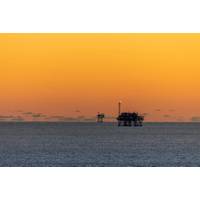Kuwait and Qatar in negotiations for new LNG supply contract of 15 years from North Field
Qatar Energy has been in discussions with Kuwait Petroleum Corporation for a long-term supply liquefied gas (LNG). This will help to meet the rising demand in Gulf Arab State for electricity generation.
Four sources confirmed that the deal will see Qatar provide Kuwait with 3,000,000 metric tons of seaborne fuel per year (mtpa), over a period of 15 years, from its North Field Project, which should begin operations in 2026.
Kuwait, a member of OPEC and a major producer of oil, is increasing its reliance upon imported gas in order to meet its power demands, particularly during the summer months when air conditioners are used more. It also focuses on ramping-up gas production as part its 2040 growth plan.
Kuwait experienced a second scheduled round of power outages due to a problem with the gas supply this week. This is despite the fact that officials had said there would not be any more interruptions after the first one in June. The summer temperatures are often above 50 degrees Celsius. This increases the demand for air conditioning.
One source said that the deal will be announced during the fourth quarter this year.
According to a fifth source, "arrangements" are still being made at KPC.
Qatar Energy and KPC did not respond immediately to requests for comment.
Qatar, the top LNG exporter in the world, is planning to increase its LNG production from 77 million tons per annum (mtpa), which it currently produces, to 142 millions metric tonnes per annum (mtpa), by 2030. This was previously estimated at 126 mtpa.
Residents are being urged to reduce their electricity usage during the peak hours of 11am-5pm local time.
Kuwait signed an agreement in 2020 with Qatar that would last 15 years and supply 3 mtpa LNG. The contract expires by 2035. Qatari LNG supplies to Kuwait could reach 6 million mtpa by the end of this decade, thanks to a new deal resulting from North Field's expansion project. Reporting by Emily Chow, Marwa Rashed, Maha El-Dahan, Ahmed Hagagy, and Andrew Mills, Doha. Additional reporting by Yousef Sabah, Kuwait, and Andrew Mills, Doha. Editing by David Evans.
(source: Reuters)





